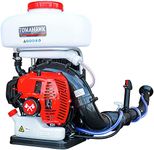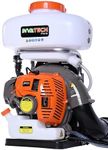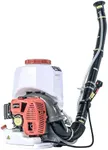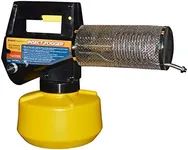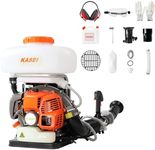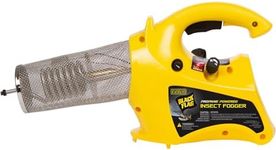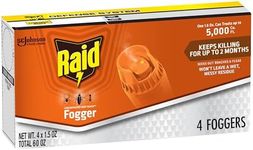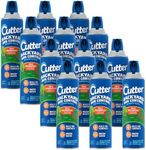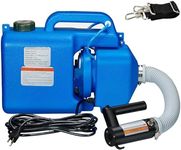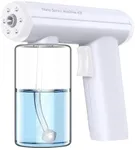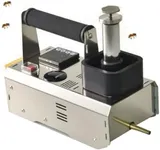Buying Guide for the Best Mosquito Foggers
Choosing the right mosquito fogger can make a big difference in managing mosquitoes around your home or outdoor space. It's important to think about how you'll use the fogger—whether for occasional backyard gatherings, frequent garden care, or larger spaces like campsites. Understanding the different specs will help you find a fogger that's both effective and easy to use for your particular needs.Type (Thermal vs. ULV/Cold Foggers)This spec tells you how the fogger turns liquid insecticide into a mist. Thermal foggers use heat (often from propane or electricity) to create a thick, visible fog, which is great for penetrating dense vegetation and covering large areas quickly. ULV (Ultra Low Volume) or cold foggers use a motor to spray a fine, invisible mist without heat, making them safer for use indoors and in smaller spaces. When choosing, consider where you'll use the fogger most: thermal foggers work well outdoors, while ULV foggers are more versatile for both indoor and outdoor use.
Coverage AreaCoverage area refers to how much space one session of fogging can effectively treat. Smaller units might cover a few hundred square feet, while larger ones may fog up to an acre or more. For small yards or patios, a lower coverage area is sufficient and easier to maneuver. For bigger properties or community gardens, a model with a higher coverage area will save you time and effort. Match the coverage to your most common use to get the best results.
Tank CapacityTank capacity means how much solution the fogger can hold at one time. Smaller tanks (fewer than 1 liter) are lighter and easier to carry but require more refilling, which is fine for quick jobs or portability. Larger tanks (1-2 liters or more) let you cover more area without stopping but may be heavier to handle. Choose a tank size based on your typical job size and how much weight you're comfortable carrying.
Ease of Use and PortabilityThis covers how simple the fogger is to operate, carry, and maintain. Lightweight, handheld models are easy to move around and often simpler to set up, making them great for quick, targeted use. Heavier, backpack-style or wheeled models are better for large-scale fogging but may be tiring for extended use. Consider your physical comfort and how often you'll be moving the fogger while in operation.
Power SourceThe power source can be propane, electricity, or battery. Propane units are highly portable and great for large, outdoor areas since they don't need a power cord. Electric units require a nearby outlet but are quieter and can be used indoors. Battery-powered units offer good mobility without the noise or fumes of propane, but battery life limits continuous use. Pick one that suits where you’ll most often be fogging.
Chemical CompatibilityNot all foggers accept the same types of insecticides. Check whether the model you're considering can handle water-based, oil-based, or both kinds of chemicals. Water-based solutions are often safer for indoor and sensitive areas, while oil-based ones may be more effective outdoors. Always check your local guidelines and pick a fogger compatible with your preferred or required mosquito control solutions.

